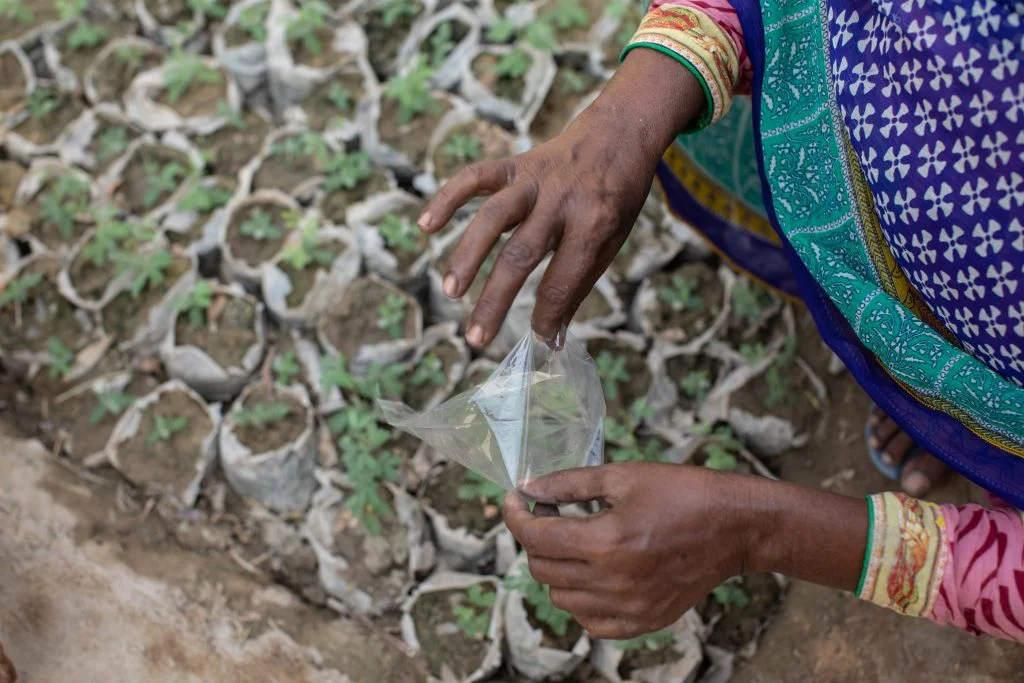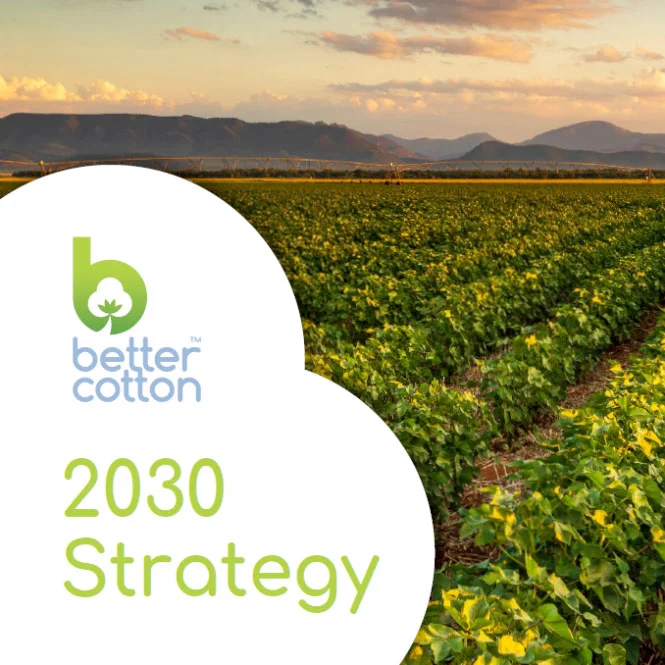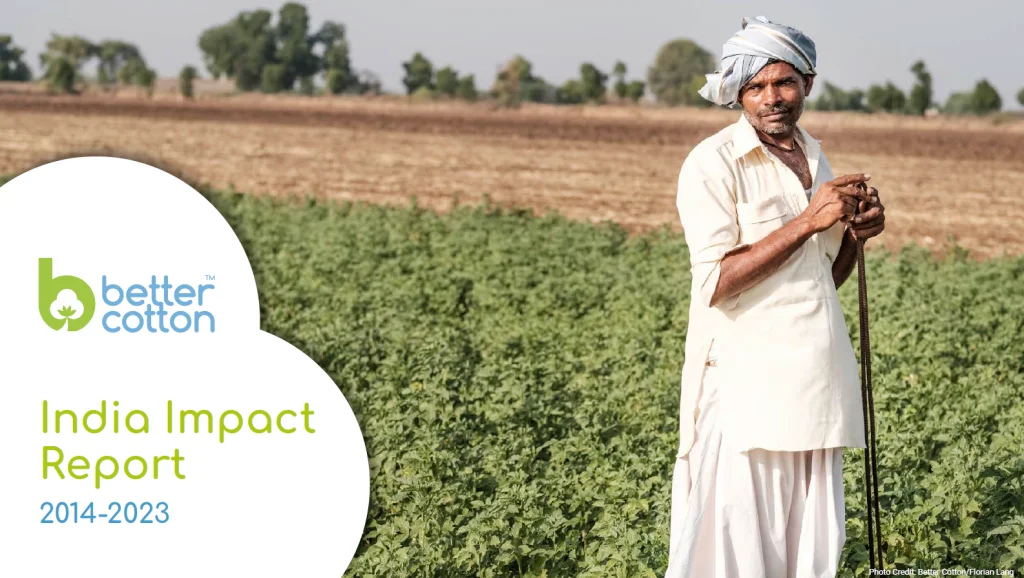- Who we are
- What we do
In just over 10 years we have become the world’s largest cotton sustainability programme. Our mission: to help cotton communities survive and thrive, while protecting and restoring the environment.
- Where we grow
Better Cotton is grown in 22 countries around the world and accounts for 22% of global cotton production. In the 2022-23 cotton season, 2.13 million licensed Better Cotton Farmers grew 5.47 million tonnes of Better Cotton.
- Our impact
- Membership
Today Better Cotton has more than 2,700 members, reflecting the breadth and diversity of the industry. Members of a global community that understands the mutual benefits of sustainable cotton farming. The moment you join, you become part of this too.
- Associate Membership
- Civil Society Membership
- Producer Organisation Membership
- Retailer and Brand Membership
- Supplier and Manufacturer Membership
- Find Members
- Member Monitoring
- Better Cotton Platform
- myBetterCotton
- Resources – Better Cotton Conference 2022
- Complaints
- Whistleblowing
- Safeguarding
- Get Involved in the Better Cotton Programme
- Thank you for contacting us
- Better Cotton’s Data Privacy Policy
- Log in
- Members’ Area
- Request for Proposals
- Better Cotton Cookie Policy
- Web Reference
- Measuring Cotton Consumption
- How to Implement the Chain of Custody Standard
- Resources – Better Cotton Conference 2023
- Certification Bodies Old
- Latest
- Sourcing
- Latest
The founding premise of Better Cotton is that a healthy sustainable future for cotton and the people that farm it is in the interests of everyone connected with it.
Let us help you find what you’re looking for
Results for {phrase} ({results_count} of {results_count_total})Displaying {results_count} results of {results_count_total}


By Alan McClay, CEO of Better Cotton
This article was first published by the World Economic Forum on 7 November 2023
The ordered streets of Brussels may feel like a million miles from the cotton fields of India or the cocoa plantations of Ghana, but smallholder farmers in countries like these could stand to be majorly impacted by a pending directive from European policymakers.
Ambitions of the European Union to improve human rights and the environmental impacts of large EU companies’ global value chains, hang on proposed changes to the much-anticipated Corporate Sustainability Due Diligence Directive (CSDDD).
In particular, proposed amendments by the European Parliament could see smallholder farmers acquire the legal right to receive a “living income” for their role in production. Such a move would represent a hugely significant advancement in improving smallholder livelihoods.
However, in the absence of this amendment, smallholders stand to be increasingly vulnerable in their role as suppliers, and their access to global markets could be at stake.
The world’s 570 million smallholders play a fundamental role in today’s global agriculture systems and textile industries. For a crop like cotton, smallholders account for more than 90% of farmers, globally. This affords them a central role in the future of the global fashion sector, which is projected to post almost double digit growth over the coming years.
Yet, low farm-gate prices coupled with systemic barriers to development, and increasing production challenges onset by climate change, prevent smallholders from being fairly rewarded. Many face economic precarity as a result, which, as well as being a manifold injustice, jeopardises the growth prospects of the sectors in which they play such a critical role.
When set up for success, however, smallholder farming provides a pathway for communities to escape poverty. At the same time, societies accrue wider economic benefits, with climate-resilient smallholders holding the key to food security.
Hence the importance of the proposed amendment that companies “be responsible for using their influence to contribute to an adequate standard of living in value chains”, including by ensuring a living income for farmers, in addition to the existing EU alignment on a living wage provision.
Clearly, as with a living wage for workers, a living income represents the minimum commitment for the rights of individual farmers and their families. But it also establishes a founding principle for a fair and sustainable agricultural sector at large.
Assuming the proposed amendments to CSDDD are passed in full, the key question moves to how its provisions can best be enacted. In particular, what does it mean for companies to use their “influence” to help address the structural poverty that lies behind smallholders’ livelihood struggles?
Acknowledging that they have such influence is the first step. The procurement practices of companies carry huge implications for small producers. Because of the multitude of intermediaries in modern supply chains, however, these implications are often obscured or – in some cases – intentionally ignored.
It is therefore vital to improve transparency so that in the future corporate buyers (and others) can have a more accurate picture of where their raw material purchases originate and the socio-economic conditions of the smallholders in question.
So, once companies know who they are sourcing from, what can they do to ensure livelihoods are improved?
The answer is ‘plenty’. Increasing smallholders’ human capital through education, training and skill development marks one major contribution. Others include assisting them in gaining access to affordable services, finance and resources, supporting their capacity for collective action and advocacy and, where necessary, helping smallholders to diversify.
As the Living Income Roadmap from the Sustainable Trade Initiative (IDH) makes clear, the precise nature of these interventions will differ from context to context. The main issue curbing a Caribbean fruit farmer’s income may be lack of capital, for example, while for a corn producer in Somalia it could be the increased frequency of drought.

Whatever the particular context, however, two overarching principles apply to all corporate living income strategies.
The first is to take a clear-eyed view of where power lies. In the case of cotton, for instance, smallholder producers might be locked into a hyper-local system controlled by individual ginners. In other commodities, it could be a processor, wholesaler or farm-gate buyer. Once identified, companies need to find ways to work with these influential actors.
The second principle follows a similar vein. Smallholders are one of many actors in a system, and their incomes are determined by how that system functions. Is data readily available, for instance? Are land tenures fairly administered? Are women or minority groups fully included? The more inclusive and equitable the system, the more beneficial the outcomes for all.
Companies should therefore use their convening power to bring together as many players in the system as possible (think: regional or municipal governments, other buyers, technical experts, farmer groups, etc) to change how that system works.
This collaborative approach goes as much for the local level as for the macro; so from helping identify living income gaps, and monitoring them, for example, right down to delivering practical income-enhancing ideas on the ground.
Including the right to a living income in the European Directive is critical to meeting the legislation’s core intent. Its omission would only serve to shift even greater responsibility onto smallholders and potentially reduce their access to global markets, or even in future – weakening their livelihoods and, as a consequence, the sectors that depend on their production.
As policymakers deliberate, meanwhile, responsible companies should bring their voices to bear and actively advocate in favour of a living income for smallholders. Not only that, it behoves them to demonstrate how responsible procurement can realise such an outcome in practice. That starts with placing smallholder rights at the centre of the process – whatever language lawmakers in Brussels do or don’t adopt.


